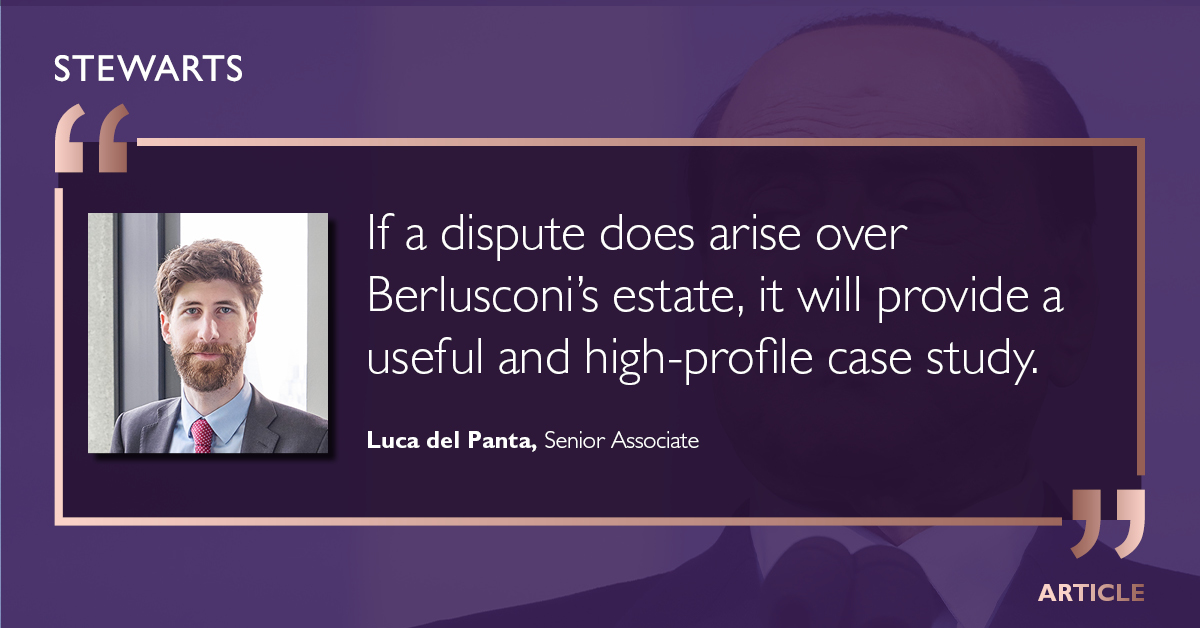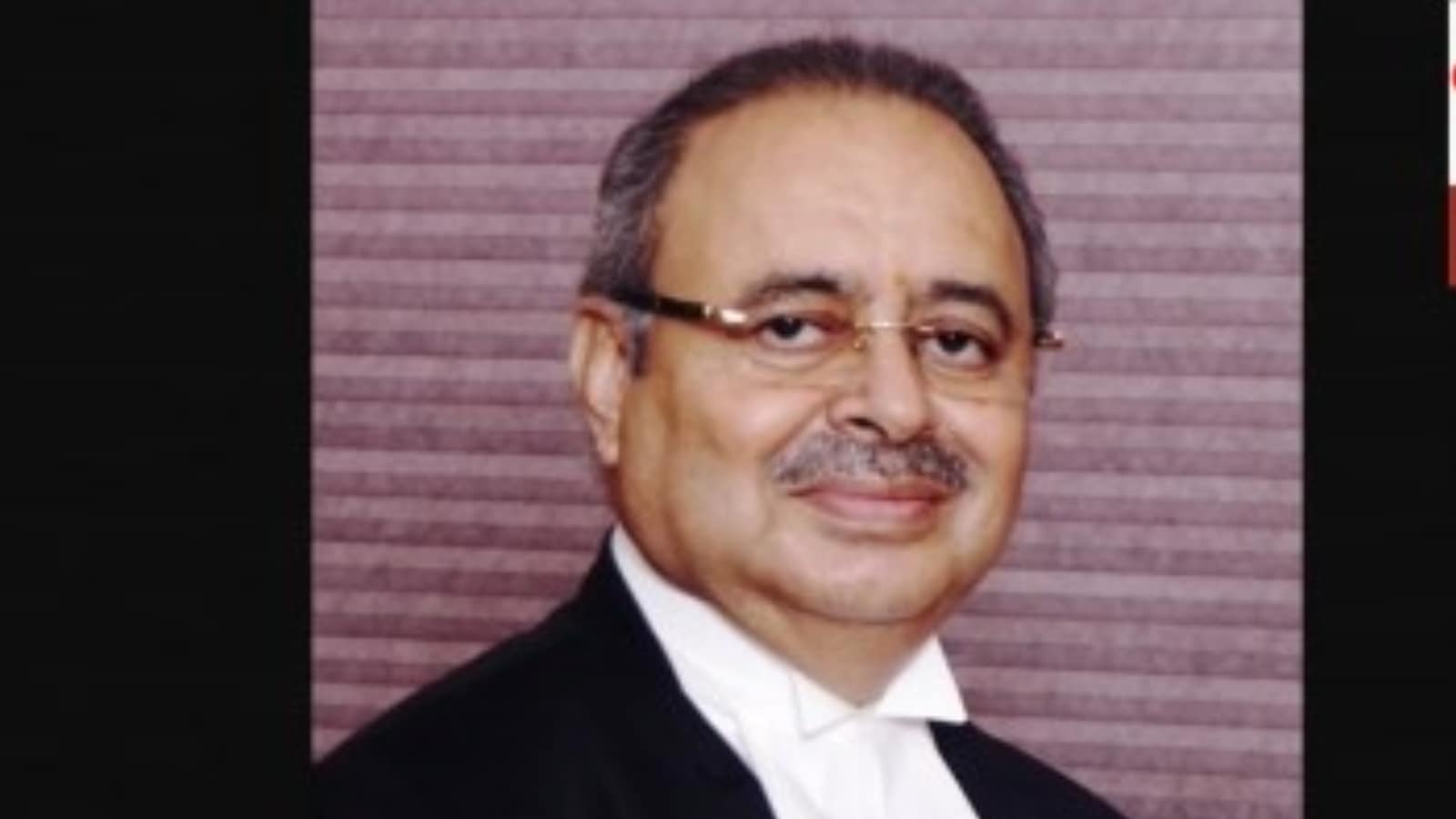Analyzing the Distribution of Silvio Berlusconi’s Estate Under Italian Succession Law
Italian Succession Law Complicates Distribution of Silvio Berlusconi’s Estate
Since Silvio Berlusconi’s will was formally ‘opened’ before a notary on 5 July, the Italian press has been speculating how his fortune (estimated by Forbes at some $6.8bn) will be divided. In this article, Luca del Panta considers some of the issues which may arise in the distribution of his estate due to the complexities of Italian succession law.
There are, in fact, no fewer than three wills, all handwritten, which between them set out the late media tycoon and ex-premier’s wishes. While handwritten wills are valid under Italian law (where there is no requirement for a will to be witnessed by two witnesses as there is in England), some reports suggest that a handwriting expert has raised concerns over the authenticity of the last will.
More complex is the issue of how the three wills interact with each other and how the assets will be distributed in practice. These assets include a majority stake in Fininvest, the holding company founded by Berlusconi for his various media and publishing business ventures.
Forced heirship under Italian law
The questions over the distribution of the assets relate primarily to an aspect of Italian law which is unfamiliar to many in countries where the law allows complete ‘freedom of testation’, that is, the freedom to dispose of one’s estate entirely as one wishes. In common with many other European countries, Italian succession law contains a system of ‘forced heirship’, which requires a fixed portion of a deceased’s estate (the ‘forced estate’) to pass to certain family members (the ‘forced heirs’, who are the deceased’s spouse, children and in some cases parents). Only the remaining portion of the estate (the ‘free estate’) can be disposed of freely by will, and any provision of an otherwise valid will which has the effect of reducing the shares of the forced heirs can be challenged.
In his first will, made in 2006, Berlusconi elected to leave the free estate to his two children from his first marriage, Marina and Pier Silvio, who also stood to receive their share of the forced estate along with three children from Berlusconi’s second marriage, Barbara, Eleonora and Luigi. The second and third wills, made in 2020 and 2022 respectively, between them contained legacies of €100m to each of his brother Paolo and his mistress Marta Fascina, and €30m to his friend and former political advisor Marcello Dell’Utri. Since these legacies cannot be paid from the forced estate, they must be paid out of the free estate.
Lifetime gifts ‘added back’
To add to the complexity, Italian law requires any significant lifetime gifts made by the deceased to be nominally ‘added back’ to the value of the total estate in order to calculate the various shares due to the heirs. This means that precisely from whose shares the €230m in cash needed to satisfy the three legacies is to be paid (and, given that most of the assets are illiquid shareholdings or property, precisely how) is by no means clear.
As the Italian press has commented, these issues could keep lawyers busy for years. They can also be resolved relatively straightforwardly if all parties concerned simply come to an agreement, as they are reported to be trying to do. Nevertheless, the potential for disputes is high.
Potential relevance to people with overseas property
Those from countries with apparently less complex succession laws should not necessarily assume that these issues are irrelevant to them, particularly given the popularity of Italy and other countries with forced heirship succession regimes, such as France and Spain, as locations for holiday homes or retirement properties. The Earl of Durham case, which occupied the society pages as well as the legal press around ten years ago (The Right Honourable Edward Richard Lambton, Earl of Durham v Lady Lucinda Lambton & Others [2013] EWHC 3566 (Ch)), highlights the potential for even more complexity when two systems of law meet.
In that case, the previous Earl had made an English will leaving his entire estate to his son, the current Earl. The Earl’s sisters challenged the will on the basis that their father was domiciled in Italy when he died and therefore Italian succession law applied, entitling them to a share of his estate.
Conclusion
Forced heirship provisions can add an extra layer of complexity to the legal, practical and emotional challenges families face when dealing with succession issues. With the law on these differing by jurisdiction, high net worth families with assets in multiple countries will need to be aware of how their property might be affected by the quirks of each legal regime. If a dispute does arise over Berlusconi’s estate, it will provide a useful and high-profile case study of how such issues might be resolved in Italy in particular.
[Luca del Panta is a senior associate in the Trust and Probate Litigation department at Stewarts. One of his areas of interest is conflict of laws issues as they apply to succession. With Emma Holland, a partner in the Trust and Probate Litigation team, he was involved in the Earl of Durham case referred to above.]
Subscribe – In order to receive our news straight to your inbox, subscribe here. Our newsletters are sent no more than once a month.


